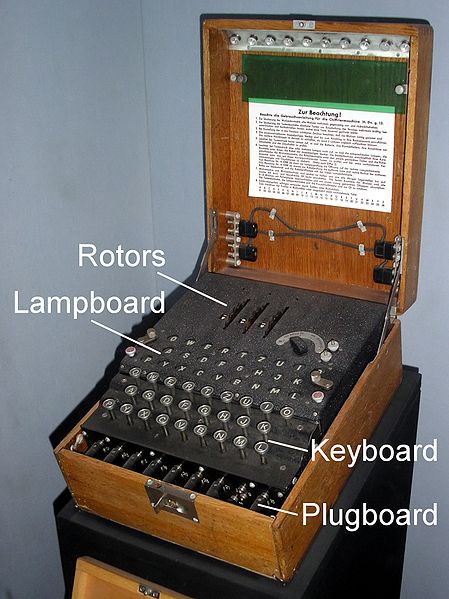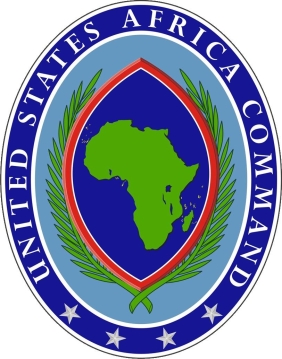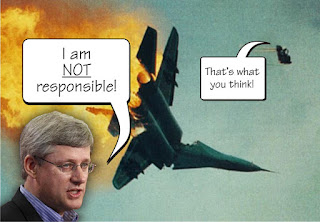80 YEARS AGO, HANS THILO-SCHMIDT needed money to keep his love-nest going. Seeing as Hans was working at the German Armed Forces' cryptographic headquarters, the Cipher Office, he had some secrets to sell. The German army and navy had adopted an improved Enigma cipher machine after the revelation that the US and the British had broken German codes in WW1.
So in 1932, Hans approached the French, and Captain Gustave Bertrand of French Intelligence seized the opportunity — to no avail, initially. The French looked at the Enigma manual and daily code key, and pronounced it unsolvable, as did the English. Things might have died right there, but Capt. Bertrand approached the Polish secret service's cipher office, who eagerly accepted the gift.

He furnished Gustave Bertrand of the French Intelligence service a booklet detailing the Enigma machine setup procedures. There was no mention of the rotor wiring or information on the keys. In fact, it was more than a booklet but seven documents with two important ones: User Manual for Enigma and Enciphering Procedure for Enigma with drawings and pictures . The French puzzled over this information, then consulted with the British, who agreed that it was insufficient to be of any practical use. No one knows why the this valuable information was rejected. Bertrand then offered it to Lt Col Langer, head of the cipher office in Poland who was overjoyed upon receiving even this small crumb. Rejewski (one of the three mathematics experts) asked Bertrand if he could obtain some outdated Enigma keys. The Frenchman relayed this request to Schmidt who readily obliged, and the keys were passed back to Poland.
With keys given them by the French, and using replica machines they had built, the Polish team of Marian Rejewski, Jerzy Rózycki and Henryk Zygalski were able to decode most German messages.
And then the Germans introduced an expanded Enigma rotor set, just before the outbreak of WW2. Adding 2 more rotors to the 3 already used, plus the addition of the plugboard meant that the solution of these new Enigma ciphers got vastly bigger, too big for the Poles to tackle. The Poles could see war approaching, so they passed their latest findings over to the British as Warsaw got pounded.
This time, the British got with the program, Bletchley Park came to be, and the Americans got up to speed with the new electro-mechanical tabulating machines, with National Cash Register supplying the machines that broke the most stubborn of all Enigma traffic, the German Kriegsmarine. This left Bletchley to tackle other Nazi ciphers, including the Offizier cipher and the Lorenz cipher in which Hitler corresponded with his generals.
Out of this effort, Alan Turing invented the first programmable electronic computer, Colossus. From these beginnings, a new digital world appeared.
 |
| Colossus Mk 2 |
So, from the wellspring of venality and greed, the source of change. Historians have said that the Ultra effort shortened the war by two years, maybe more. Certainly the Enigma decrypts resulted in the defeat of the U-boat campaign, with the withdrawal of the wolfpacks by mid 1943.
But Ultra actually accomplished more than the mainstream historians would suggest. IMHO, without Ultra, the chances are very good that Russia would have collapsed in 1942-1943. Why? Because Stalin had purged the Red Army officer corps and the NKVD, and the survivors were easy pickings for the German veterans.
But the British did not share any details about Ultra with the Russians, except to give general warnings. It was the efforts of the Cambridge Five that got the decrypts to Moscow Center. Kim Philby (cryptonym: Stanley), Donald Duart Maclean (cryptonym: Homer), Guy Burgess (cryptonym: Hicks) and Anthony Blunt (cryptonym: Johnson) and John Cairncross (cryptonym: Liszt) were ideological spies, who believed that Socialism was the future, in spite of Stalin. Their efforts, as recounted by one of their major "handlers", Yuri Modin, in his book, "My Five Cambridge Friends" were tireless in their efforts to pass along the Bletchley decrypts.
From their efforts, the Russians had the Wehrmacht "order of battle", the disposition and organization of Wehrmacht units, as well as Luftwaffe disposition. This last was extremely critical, as the Soviet air power was able to destroy a lot of Luftwaffe aircraft before the battle of Kursk, and the Luftwaffe was never able to catch up.
Without the chain of events unfolding as they did, the chances were very good that Russia could have collapsed, the US and the UK would have had to agree to an armistice with Nazi Germany that might have survived in some fashion until the US could have started irradiating German cities with A-bombs in 1946.
From chaos, venality and patriotism, we get to today. Everything has changed, and nothing has changed: we have Wikileaks, Bradley Manning and OWS, Occupy Wall Street.
It may be delusional, but I like to believe that more and more people are taking their freedom more seriously. Today's fascists have eschewed the funky Nazi uniforms for Armani suits, Rolexes and Porsche Designer Sunglasses, but like the fascists of old, the ruthlessness remains — only this time the ruthlessness is hidden in the smoke and mirrors of "patriotism". Meanwhile, the true patriots, the Bradley Mannings of this world keep appearing, to try to make things right and the eternal battle against fascism continues.


.jpg)



























